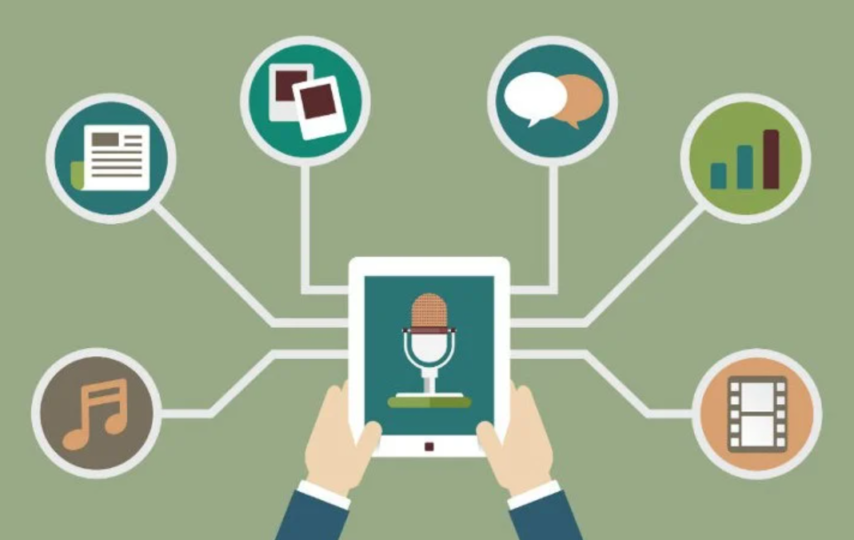If you use videos just as an element to keep learners engaged in the course, have you considered the possibility of using only audio? If you have listened to radio programs or audio CDs, you probably know the impact these can have as the human voice of a stranger, far away, guides you so strongly. The obvious advantage is that it is popular among almost all age groups. If you think about it, podcasts are just like radio programs.
If you make wise use of the evolving digital era with a resourceful eLearning platform like Talent LMS, you can transform the learning experience of all your learners. Imagine having a course-specific podcast that offers exclusive course material. You can play while taking a bus or cooking food and your learning, then, extends beyond lesson hours. How fun does that sound? If you can stream or upload your podcasts on eLearning platforms, it will help you create a convenient and authentic learning environment that your learners will enjoy.
This article attempts to open possibilities of using podcasts in eLearning and discuss how helpful they can be.
- They are a good alternative to video lessons
While there can be no denying the fact that videos are an extremely effective way of learning, they can sometimes be expensive as you spend resources on scripting, editing, producing, etc. But you only need a little equipment for producing a podcast. It is cheaper and easier to produce too.
Podcasts can, in fact, serve different purposes and in different ways. It is possible to record and distribute training sessions or lectures given by teachers, subject-matter experts, and seniors. These sessions can also be edited and reused as brief modules. Such podcasts can also be used to introduce new concepts in small and interesting modules. Organizations can make use of these to orient new trainees or up-skill old employees. Remember that podcasts are a great way to address frequently asked questions or queries that you think might arise after a session. This will also be of great help to people who might have missed live sessions.
- Can be accessed any time of the day, anywhere
As previously mentioned, one of the major strengths of podcasts is that they enable learning anytime and anywhere with their hands-free nature and portability. Learners who are on the go or doing distance learning can benefit from a readily accessible learning resource by downloading podcasts to a device and listening to them offline. This also cuts out the problems faced due to internet network issues during video sessions.
Additionally, downloading a podcast takes much less space on a device than that taken by videos, and is, therefore, faster too.
- Enables collaborative learning
When in a learning environment, you grasp a lot more than what is taught in the course material. This learning happens through observation of self and others and listening to their experiences of the same events. Podcasts enable such collaborative learning because they can give space for social learning to happen.
You can ask your learners to share their experiences on a recording and host it on the same platform. This way, your learners can feel a sense of togetherness and bring them closer together not just to each other but also you. This will enlarge your knowledge circle and give you an insight into which modules are working and how actively learners are participating in your course. You will be able to make amends in your course content according to the needs of your learners.
- Narrative podcasts create immersive learning experiences
As the name suggests, narrative podcasts use story-driven audio to keep their learners more engaged, as compared to conversational podcasts that might include one person or a group of people who discuss questions or a particular topic. Narrative podcasts focus heavily on storytelling methods like scene building, characters, and plotlines, as well as production aspects like sound and music. Even with this, podcasts can have episodes. Listeners will have a reason to keep downloading or streaming episodes when they are built upon one another. Whether you decide to make it fictional or non-fictional, the idea is to present concepts and explain what needs to be explained through a more immersive and engaging form of a podcast.
Though this side of digital learning is not so popular and is not likely to fit every course requirement, when used in accordance with the needs of a course, it can ensure learning effectiveness. Plan your podcast prior to recording, ensure high-quality sound with minimal interruptions, and you will be good to go.













